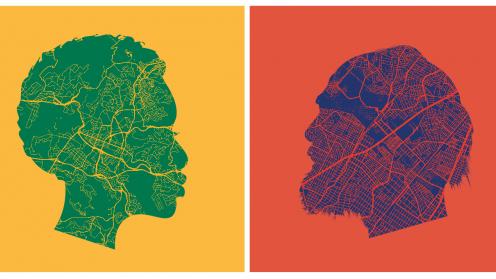Executive Summary
Key Highlights
Local and Regional Governments (LRGs) convened for LRG Day and a two-day LRG Forum on the sidelines of the 2021 UN High-Level Political Forum on Sustainable Development (HLPF 2021).
The fifth “Towards the Localization of the SDGs” report, prepared by the Global Taskforce of LRGs was presented during LRG Day. The report highlights sustainable and resilient recovery driven by cities and territories, specifically the role of LRGs on the frontline of the COVID-19 response, while delivering on localized SDG implementation actions.
The LRG Joint Statement to HLPF 2021, deliberated on during Forum, reflects the need for a safe, green, and just post-pandemic recovery that addresses inequalities exacerbated by the pandemic.
Key Takeaways
LRG Day: LRG Day shone a light on LRG activities toward achieving SDG 3 (good health and well-being), through public service delivery and policies.
The fifth Towards the localization of the SDGs report, prepared by the Global Taskforce of LRGs, was presented during LRG Day and to the HLPF. The report cites diverse local SDG-related initiatives coupled with actions to tackle emerging challenges related to the COVID-19 crisis, and climate change. Some of the report’s key recommendations include:
- acceleration of SDG implementation can be achieved through empowering LRGs;
- galvanizing localization of the SDGs in cities and territories will ensure innovative LRG policies;
- enabling conditions, including financial flows, are urgently needed to ensure capacity of LRGs to act to progress implementation of the SDGs;
- strengthening LRG voices in VNRs will achieve a qualitative leap in SDG implementation;
- bottom-up monitoring and collection of disaggregated data should be included in SDG localization to support tracking implementation; and
- global cooperation should be strengthened through the multilateral system to support LRGs’ key role in bridging local communities and global institutions.
The meeting discussed ways of accelerating localization of the diverse global development agenda, including the 2030 Agenda for Sustainable Development, the New Urban Agenda adopted at Habitat III, and the Paris Agreement on climate change. The meeting emphasized the need to include a human rights approach, focus on reaching vulnerable societies, and bridging inequalities to build back resilient post-pandemic societies.
Participants further called for enhancing LRG involvement in VNRs and support for producing VLRs to share best practices and highlight SDG success stories.
Discussions on the future of the Local Common Agenda, elaborated in the Visioning Report UN75: The Role of Local and Regional Governments in the Future Global Governance of the International System produced by the Global Taskforce of LRGs, reflected optimism as local government representatives presented innovative ways of engaging with national and international partners to put communities at the center of sustainable development through improving local consumption and production patterns, greening cities, and focusing on the inclusive post-pandemic recovery.
LRG Forum: The LRG Forum, held virtually for the second time due to the ongoing COVID-19 global crisis, convened under the theme “Fostering a Recovery that Is Resilient and Led by the Communities.”
The event illustrated the importance of localizing action and partnerships among spheres of governments and stakeholders towards achieving the SDGs under review by HLPF 2021: SDG 1 (no poverty), SDG 2 on (zero hunger), SDG 3 (good health and well-being), SDG 8 (decent work and economic growth), 10 (reduced inequalities), 12 (responsible consumption and production), SDG 13 (climate action), SDG 16 (peace, justice and strong institutions), and SDG 17 (partnerships for the Goals). Discussions took place through four panel sessions on: SDG 3; social inclusion; transformation of work and consumption and production models; and multilevel governance. More specifically, Forum participants discussed:
- innovative actions in health care including management of waste and sanitation, pandemic infection control policies, and remote health consultations;
- ways of enhancing social inclusion and prosperity including gender equality in politics and ensuring women, children, youth, and other marginalized groups are not left behind in the post-pandemic recovery;
- transformation of work and consumption and production models, which can be achieved through digital platforms, renewable energy, and circular economy coupled with green jobs; and
- the role of LRGs in creating robust multilateral collaborations to respond to the global pandemic and other planetary crises, given LRG are drivers of global policies on-the-ground and ensure sustainable livelihoods of communities.
In a joint statement to HLPF 2021, LRGs highlighted the interlinkages between public service provision and health systems reflected during the COVID-19 crisis. They underlined, inter alia:
- recovery needs to be equitable and work for all communities;
- the only recovery is one that is safe, green, and just;
- multi-level governance and capacities of LRGs must be strengthened for effective achievement of the global agenda; and
- localization of the SDGs remains relevant as LRGs have become involved in monitoring and reporting processes.
Even as the role of LRGs continues to gain prominence in the global agenda, LRG Day and the LRG Forum reaffirmed that achieving resilient, inclusive, and sustainable societies requires: inclusive institutions at the subnational level; adequate resources; and data and capacity building to ensure recovery from COVID-19 and the triple planetary crises related to climate, nature, and pollution.
